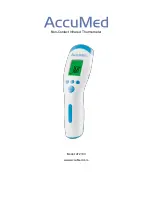
20
9.3.2 Antifreeze temperature
This menu, via
or
, lets you increase/decrease the value of the antifreeze temper-
ature
.
Antifreeze mode is used to set a minimum temperature level to avoid damage to the pipework or
keep the room temperature from falling below a safety level (see par. 8.5).
9.3.3 Nighttime reduction thermal delta
This menu, via
and
, lets you set the difference between the Nighttime temperature
and the temperature set in Manual mode.
The hysteresis is an increase/decrease in temperature that is applied to the Manual setting; the
thermal delta value is identical both in heating mode and in air-conditioning mode with the only
difference being that in the former case it causes a decrease in the set point while in the latter
one it determines an increase.
9.3.4 User settable thermal delta
This menu, via
and
, lets you set the range of values within which the user can
adjust the temperature when the menus are inhibited after setting a PIN.
In this condition, the control temperature is fixed and therefore cannot be changed; with
instead, the user can modify the temperature within a certain range.
9.3.5 Hysteresis of the device
This menu, via
and
,
lets you set the temperature range of the heating/air-condi-
tioning system between "ON" and "OFF".
This value can also be changed via the submenu for ON/OFF operation.
The parameter cannot be changed if the thermostat is set as PID operation.
For example: Heating, with setpoint on 20.0°C,
: 0.5°C
20.5 (off), 19.9 (on)
9.3.6 External probe alarm temperature
The menu, via
or
, lets you set the temperature limit (read by the external probe)
at which the thermostat switches off the heating system and triggers an alarm (useful to protect
underfloor systems against overheating).
To view this menu, the external temperature probe must be wired set as a "limitation".
9.4 Unit of measurement setting
• The menu lets you set the unit of measurement used for the temperature (°C or °F)
Using
and
select the required unit of measurement and confirm with
.







































